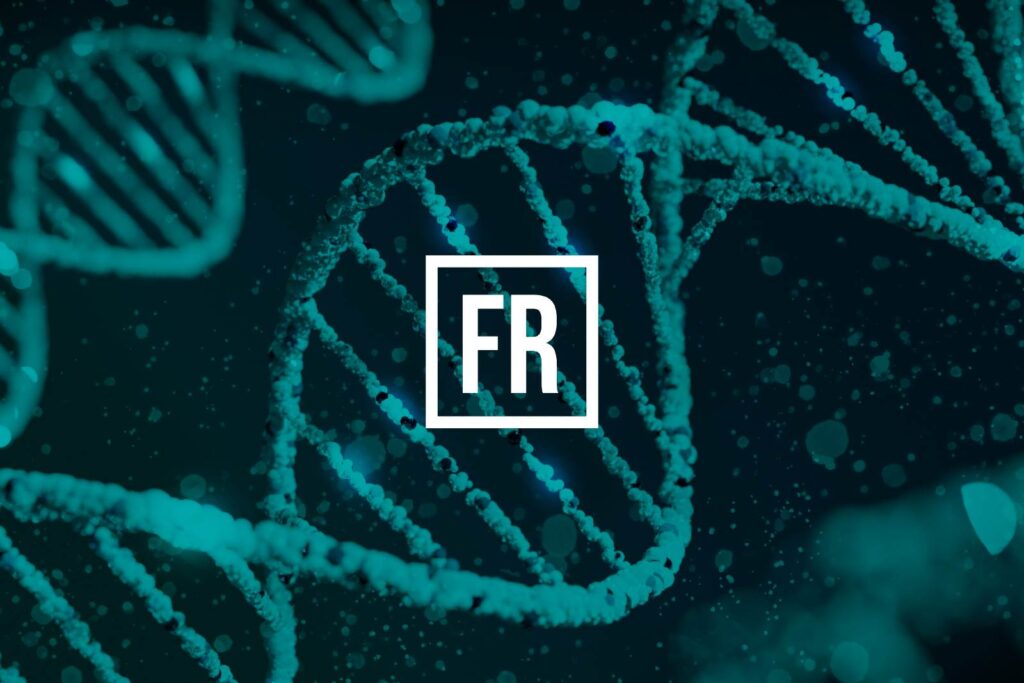Warning: Undefined variable $insertContent_1 in /home/u956102120/domains/fertilityroad.com/public_html/wp-content/themes/hello-theme-child-master/functions.php on line 79
Experts at Instituto Bernabeu warn that embryo biopsy increases pregnancy rates and reduces miscarriage risk and chromosomal alterations, but it is not always necessary.
Chromosomal alterations in embryos are one of the main causes of low pregnancy rates. Therefore, one of the strategies applied by fertility gynaecologists to improve embryo implantation is the pre-implantation genetic diagnosis of aneuploidy (PGT-A), which allows us to know with high precision which embryos are altered, even though they do not appear to be so.
In 1978, the birth of Louise Brown, the first child born through in vitro fertilisation (IVF), opened the path for a new science that never stops researching and currently allows the birth of millions of people around the world. Advances in technology and genetics have enabled thousands of couples around the world to have a child thanks to assisted reproduction techniques. And, in a relatively short time, very significant advances have been made in reproductive medicine.
Today, infertility has become a problem of global impact. The World Health Organisation (WHO) has already warned that one in six people in the world, regardless of their location, suffer or will suffer from infertility. In this regard, continued research is essential. After years of development, genetics has already become a great ally in achieving pregnancy, as scientists have been able to prove that genetic alterations are behind many of the problems preventing offspring.
To contribute to an accurate diagnosis, personalising treatments according to the individual profile of each patient and to avoid the birth of babies with hereditary diseases are the main objectives of Instituto Bernabeu’s specialists in genetics and molecular biology. This group is specialised in reproductive medicine, which stands out worldwide for its research and genetics studies applied to treatments, thanks to its own genetics laboratory, IBbiotech, and the specialisation and experience of its specialist doctors and embryologists.
You might be interested in: The Good, The Bad And The Baby Maker – Embryo Quality – Grading Systems
Age is a risk factor
Society’s current trend to delay motherhood means that women decide to become mothers later than biologically advisable. As women get older, their ovarian reserve decreases and the probability of their eggs having chromosomal alterations (aneuploidy) increases, according to Instituto Bernabeu. The impact in a healthy woman, who is physically at an optimum moment, to learn that she cannot have children with her own eggs, is enormous. With four decades of dedication to reproductive medicine, and a pioneer in the development of assisted reproduction techniques, Instituto Bernabeu’s medical director, Dr Rafael Bernabeu, has experienced the science’s evolution, the improvement of treatments, which today have been simplified, and the tendency to have a child later and later. Even so, Dr Bernabeu warns that women’s reproductive capacity has not changed or evolved in the last 100 years.
As women age, the chances of producing healthy embryos decrease, leading to increased rates of aneuploidy (abnormal chromosome count) and higher miscarriage rates. By using PGT to identify chromosomally normal embryos, the chances of a successful pregnancy can be substantially increased. Recent research has shown that as long as the embryo is chromosomally normal, the pregnancy success rates remain consistent regardless of maternal age.
Dr Ángela Llaneza, a fertility specialist at Clinica Tambre explains
From the age of 35, ovarian reserve begins to fail, women have fewer oocytes and these are of poorer quality because from the time a woman enters fertile age, with her first period, she begins to release the best oocytes in each cycle and gradually loses quantity and quality.
You may be interested in reading: IVF over 50 – best clinics and availability
Patients from all over the world
Every year, Instituto Bernabeu receives thousands of couples from all over the world in search of solutions to their reproductive problems at its Spanish clinics in Madrid, Alicante, Albacete, Cartagena, Elche, Benidorm and one in Italy, located in Venice. Dr Ruth Morales, the Genetic and Reproductive Counselling Unit Director at Instituto Bernabeu, explains that molecular biology has undergone great advances allowing the development of techniques capable of analysing all chromosomes from one or several cells thanks to the embryo biopsy.
Instituto Bernabeu’s Genetic and Reproductive Counselling Unit explains that the incorporation of massive sequencing (NGS, Next Generation Sequencing) has improved diagnosis by increasing the visualisation capacity to discover what scientists call “small segmental alterations”, undetectable with the old techniques; and chromosomal mosaicism, when the embryo presents a mixture of chromosomally normal and abnormal cells.
A book of 46 chromosomes
The book of life of each person is written with 46 chromosomes, 23 are provided by the father and 23 by the mother. Only embryos with the correct number of chromosomes can give rise to a healthy child, the others will block themselves, end in miscarriage or the birth of a baby with congenital malformations. For example, an extra copy of chromosome 21 would be the cause of Down’s syndrome (trisomy 21). Other common chromosomal abnormalities (aneuploidies) are trisomy 18; trisomy 15; or 47 XXY (Klinefelter syndrome).
Strategy to increase pregnancy rates in specific cases
Instituto Bernabeu is a pioneer in the use of PGT-A and stays at the forefront with continuous studies published in international scientific journals. So much so that it is one of the first centres in the world performing embryo biopsy on day 5/6 for years, analysing several cells of the trophoectoderm (the future placenta), “which allow us to be more efficient in the diagnosis”. Even so, experts do not recommend this technique in all cases. “It is not a fad, nor can we recommend it in all cases, only when the physician considers it necessary should it be performed. We base the prescription on criteria related to the patients’ age or medical history”, specialists point out.
What is the usual procedure?
In Vitro Fertilisation (IVF) is the most common procedure in assisted reproduction treatment. In the laboratory, eggs are fertilised with sperm. The embryos are placed in incubators for the first few days of development. At the embryo’s blastocyst stage, day 5 or 6 of embryo culture, PGT-A is performed if necessary. The usual procedure involves the embryo’s cryopreservation after the test until the experts receive the test results. Having our own unit and specialised laboratories within the clinic means significant advantages for specialists and patients. “Our team has everything necessary to carry out the tests in the laboratories, which means faster feedback in results and greater confidence and security for our patients during their treatment and results”, explains Dr Morales.
Once the results have been obtained, and before the embryo transfer, the experts carry out a genetic counselling consultation with the patients, in order to explain the results in detail and to inform them of the next steps.
For which patients is PGT-A recommended?
PGT-A is a test recommended for specific cases.
- When the woman is of advanced age. There is evidence of an increase in chromosomal alterations in the embryo at advanced maternal ages (over 40 years of age). Between 35-40 years of age, a personalised assessment of each case should be carried out before recommending the test.
- When one or both parents carry a chromosomal abnormality (altered karyotype).
- After several implantation failures. Couples with implantation failure are those who undergo assisted reproduction treatments without achieving pregnancy after several transfer cycles with good quality embryos.
- When repeated miscarriages have occurred. That is, when the woman has suffered at least 2 consecutive gestational losses or 3 gestational losses during her reproductive life, as chromosomal alterations are the main cause of miscarriage.
- In case of severe male factor, in which a chromosomal origin is suspected as a cause of male infertility.
You may be interested in reading: IVF and PGT-A – is it worth the cost?
Successful cases at Instituto Bernabeu
PGT-A helps to improve outcomes in older women and is especially recommended for women who have suffered implantation failure and repeated miscarriages. Following there are some stories with happy ending.
Maria and Andres, (not their real names) are Marco’s happy parents, but they went through a long journey to get to him. They had been looking for pregnancy for 13 years without success, and they had three failed previous treatments in other clinics. The first one did not result in a transfer because the embryo was blocked before reaching blastocyst stage; second treatment, on day 2, the embryo was transferred and did not implant; and third, a transfer of 2 embryos was carried out, which also failed to implant.
Despite the great disappointment, they were not ready to give up and decided to span borders beyond their city. They arrived at Instituto Bernabeu Madrid aged 39 and 47 respectively. At Instituto Bernabeu they had done all necessary tests and analyses before starting the new treatment. The specialists diagnosed a low ovarian reserve for her and a moderate male factor for him. Personalised analyses were carried out and, due to the couple’s history, the medical specialists recommended double stimulation in order to obtain more oocytes in the same cycle and so perform treatment with their own oocytes. In addition, PGT-A was recommended for as many embryos as possible. After performing in vitro fertilization through ICSI, 4 embryos were obtained, after PGT-A, only one of them was viable. The remaining 3 embryos were affected by different genetic alterations that classified them as aneuploid. The only viable embryo was transferred and the result was positive, giving rise to an evolutionary pregnancy and the birth of Marco, a healthy baby.
Another successful story is that of a German couple who had unsuccessfully undergone treatment in their home country. She was able to get pregnant easily but none of the pregnancies progressed favourably. They had suffered 3 miscarriages between 5th and 9th week of pregnancy and did not know the cause of the miscarriages. When they arrived at Instituto Bernabeu Alicante, the IBbiotech team discovered, after performing the relevant genetic tests, that the woman was a carrier of an alteration in her chromosomes called reciprocal alteration and, although she could easily achieve pregnancy, there was a high risk of transmitting this alteration to the foetus and so the pregnancy would end up in miscarriage, as it did, which indicated the need for the PGT-A. During treatment, 4 embryos were cryopreserved and, on analysis, two were found to be balanced (normal) and two were found to have chromosomal alterations due to maternal pathology, making them non-viable for treatment.
When the time came, one of the healthy embryos was transferred and resulted in a positive beta, a pregnancy that ended in a natural delivery and Jan, a 59 cm baby with a weight over 4.5 kg, was born.
The couple now want a baby brother for Jan and have gone to Instituto Bernabeu to have the previously cryopreserved embryo transferred, but this time they preferred to undergo treatment in Palma de Mallorca clinic and return to carry out the follow-ups and controls in their home country, with their main gynaecologist.
Pros and cons of PGT-A
This technique allows the experts to know more about the third patient in an assisted reproduction treatment: the embryo.
Key benefits
- Improves implantation rates
This technique involves transferring chromosomally normal embryos, increasing implantation rates and reducing miscarriage risks and chromosomal alterations. - Reduces the disease risk
There are chromosomal alterations incompatible with life and prevent the embryo from developing and even implanting in the mother’s womb. Among the chromosomal alterations, there are some less harmful to the embryo and allow it to implant, but prevent an ongoing pregnancy and ends in miscarriage, or the future baby may suffer from different syndromes such as Down’s syndrome, Patau’s syndrome or Edward’s syndrome. - Decreases time to pregnancy
In assisted reproduction treatment, time is very important. PGT-A makes it possible to know which embryos can give rise to a developing pregnancy and thus avoid transferring embryos that will be blocked in their development and will not give rise to the birth of a healthy child. - Improves emotional state
Patient’s uncertainty disappears because they will have certainty of diagnosis. At the same time, by lowering the probability of miscarriage, emotional stress is reduced, especially in patients who have already suffered pregnancy loss. - Lower cost
Performing this test means that the embryos to be cryopreserved will only be the healthy ones, resulting in lower costs for patients.
Inconveniences
- Is an invasive procedure
Although current techniques allow the embryos to remain unaffected, the reality is that it is an invasive procedure, which carries a risk. This is especially important for couples who have very few embryos. In recent years there have been numerous advances in this regard minimising the biopsy’s potential harmful effect. Embryo biopsy on day 5 of development and the technical development carried out at Instituto Bernabeu has been key to consider that embryo biopsy has practically no effect on the viability of the embryo. Patients are explained in detail what the technique consists of and the risks involved. - Freeze survival
Embryos are cryopreserved and thaw survival rates are increasingly high, now reaching 98%, although this risk remains and must be taken into account.
Science and research at the base
Dr Morales explains that there is a clear benefit of using PGT-A technique in assisted reproduction as it will improve the treatment’s success. The Unit specialising in Genetic and Reproductive Counselling guides couples through the entire process and provides personalised analysis of their case.
In order to achieve success, it is essential to have a highly trained team and the latest technology. Instituto Bernabeu explains that they have been applying this technique in its clinics for years, offering the highest standards of quality in the results, and shortening the time to achieve their patients’ goal: pregnancy and the birth of a baby free of chromosomal diseases.
Medical decisions taken at Instituto Bernabeu are based on scientific research, where the clinic is at the forefront of continuous development. Decisions are taken in the weekly medical committee, where cases are presented and in which gynaecologists, embryologists and geneticists, among others, participate. As a result of the research, very innovative studies have been developed, such as non-invasive diagnosis through the study of the DNA present in the culture medium.
niPGT-A, a posible future alternative
Currently, one of Instituto Bernabeu’s research lines is the embryo non-invasive diagnosis (niPGTA), which is done by studying the free DNA left the culture medium in which the embryo is found in order to detect chromosomal alterations without performing an embryo biopsy.
The clinic has a vast experience in these studies. In 2021, the specialised journal RBM Online published Instituto Bernabeu’s research on the analysis carried out by the researchers, and that same year the study received the national award from the Association for the Study of Reproductive Biology (ASEBIR in Spanish).
In 2023, the journal “Current Opinion in Obstetricts and Gynecology” published a new study by Instituto Bernabeu researchers. In this case, a review to assess the reliability of this genetic test, as it could be an alternative to pre-implantation genetic diagnosis, which could become a simpler and safer tool for the embryo.
However, this test is still under development and study. IBbiotech scientific director, Dr Belén Lledó, explains that “publications so far show high rates of discordance between the results obtained from PGD through trophectoderm biopsy (currently used and invasive method) and those obtained from free DNA in the culture medium. Our review is in line with previous national and international reviews, in which we conclude that there is insufficient scientific evidence for a clinical application of non-invasive preimplantation PGD. Therefore, we will continue to apply the current technique”, concludes the expert.






